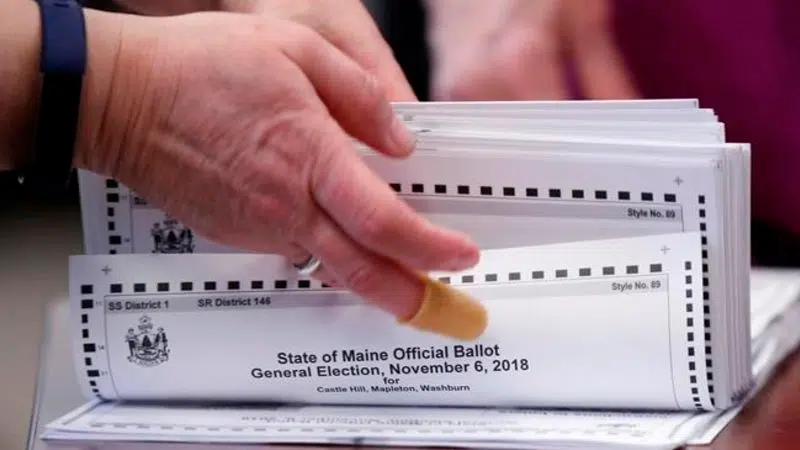
Maine to allow ranked votes in general presidential election
PORTLAND, Maine — Maine moved ahead Friday with plans to become the first state to allow voters to rank candidates in a general presidential election.
Gov. Janet Mills, a Democrat, said she’ll allow a bill to become law in January without her signature. The legislation requires ranked choice voting in presidential elections and primaries.
Ranked voting won’t be used in a planned presidential primary in March 2020, Mills’ office said. The bill won’t go into effect until 90 days after the Legislature is set to adjourn in April.
But future presidential primaries would use ranked choice voting, according to the governor’s office.


